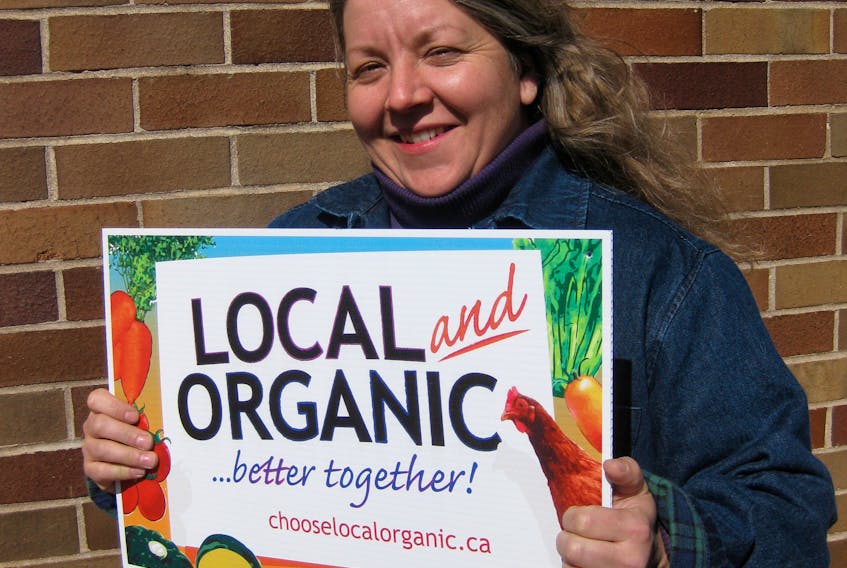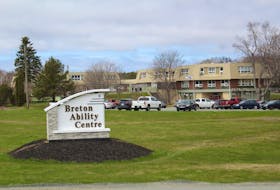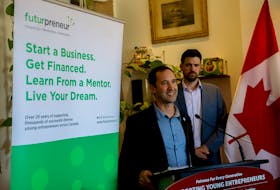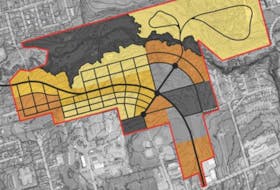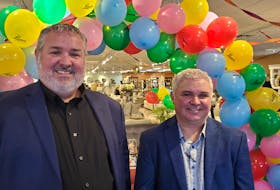Josh Oulton and Patricia Bishop, of TapRoot Farms in Port Williams, N.S., became certified to grow and produce organic products in 2009.
Over the years, they have made maintaining that certification a priority even though some producers have settled on terms like spray-free, natural or even ‘almost organic’.
“It’s important to us because we want to farm in a better way. We want to lead by example,” Oulton said in a recent interview.
“We want to farm more in tune with nature. We wanted to move away from petroleum-based fertilizers and synthetic pesticides.
The couple believes the best way to do that is by having a third party come and certify the farm to make sure they are following the rules.
The development of newer inputs - or the tools like natural fertilizers and pesticides the farmer can use that is permitted by organic standards - are even becoming popular with non-organic farms.
"I think organics are going to continue to grow, and there is going to be more acceptance by conventional or non-organic growers and a bit of morphing or coming together of organic and conventional farming practices," Oulton said.

Advocates for the adoption of organic farming practices in Canada say the organic agriculture sector has grown faster in recent years than its non-organic counterpart.
"Organic is the fastest-growing category in agriculture in Canada and has consistent sales growth across all product categories. Canadians are demanding more and more variety in their organic purchases, which is driving the market to keep up with this next generations' desire for more organic," according to Tia Loftsgard, executive director of the Canada Organic Trade Association. The association says the sector has seen 8.7 per cent year-over-year growth steadily since 2017.
“Our sector is the fastest growing. It doesn’t mean we are the biggest. But we are certainly the fastest-growing sector,” Loftsgard said in a recent interview.
How to become certified organic?
Another ardent advocate for the adoption of widespread organic farming is Allison Grant, of Brooklyn, N.S.
Grant has been an advocate for organic farm practices for more than a quarter-century. She managed a health food store and was a certified organic farmer herself, still growing organic for her consumption.
She sits on the Organic Federation of Canada - Standards Interpretation Committee (SIC), is the chairperson for the Organic Value Chain Roundtable (OVCRT) - Public Trust for Organic working group, and was consulted on the development of the Nova Scotia Organic Regulations.
Grant also serves as an organic inspector for the Canadian Food Inspection Agency and is an organic inspector and verification officer for three certification bodies. That means she is one of the people who decide if an aspiring organic farmer receives the certification required to legally use the descriptor “organic” on product labelling and is granted an annual renewal of that certification.
During a recent interview, Grant said the benchmark for certification is the Canadian Organic Standards. It is accompanied by the permitted substances list, which restricts the inputs used to grow and process organic products. It is the products that are certified, she says, not the farm itself.
The burden of proof of compliance is on the farmer through careful record-keeping and thorough inspections.
“If you truly want the assurance that you are producing a product that aligns with your values of protecting the earth, eliminating the use of persistent toxic chemicals and actually improving your piece of land by increasing biodiversity, the only way you can guarantee that is through certification,” Grant said.
Cost of organic
Budding organic farmers face many challenges, such as not being able to call yourself organic for at least a year after applying for certification. The land used for organic production must be free of prohibited substances for 36 months, and there needs to be a minimum buffer zone if there is a possibility of contamination from neighbouring land.
Annual fees for certification can range from $750 for a small market farm setup to thousands, depending on the size and complexity of the operation.
Organic farming practices - such as planting seedlings rather than chemically-treated seeds - generate higher labour costs, and regular crop rotation means lower overall yields when land is not in use.
But, Grant believes certified organic growers and producers, and consumers who are willing to pay more for organic products, are supporting a system of agriculture that is protecting the air, water and soil for future generations and is grown in a manner that produces healthier food without the use of persistent toxic chemicals.
“I don't have a lot of patience anymore for the whining and complaining about how hard it is to be organic and the paperwork burden and all that. Call yourself whatever you want, but don't use the word organic unless you are certified,” Grant said.
“That's insulting your friends and neighbours that go through the effort to have their practices scrutinized annually and to have that additional burden of proof.”
How can you support organic farmers during a pandemic?
Many small-scale organic farmers in Nova Scotia are struggling to pay the bills during the COVID-19 pandemic because they can't access regular customers after some farmers' markets closed due to restrictions on public gatherings.
While there are some solutions becoming available thanks to pick up farmers’ markets, it’s created a conundrum for some farmers. They’re hoping the community will rally around their farms and show support during this period.
Wild Rose Farm in Gilberts Cove, Digby County, is considering letting its organic certification lapse for a year because of lost sales and lack of human resources to deal with the economic slowdown caused by emergency protocols.
“Right now, things are not going very well,” the farm’s Gilberte Doelle said. "We market direct, and everybody is in the grocery stores and the markets are shut down."
Doelle said customers could help by joining Wild Rose Farm's Community Shared Agriculture program (CSA), where clients commit financially to purchase a box of fresh produce every week, which can be picked up at four locations. Information on the CSA is available on Facebook or at www.wildrosefarm.ca
“I think everyone should support a sustainable local economy,” said Oulton.
“If you want to continue to see organic farms in this community, then you need to seek out and support organic farmers.”
Food products from TapRoot Farms are available at Noggins retail locations and information on the farms CSA and delivery service is available at taprootfarms.ca.
How are you supporting local farmers right now? Comments are open on this article to members at SaltWire.com.

